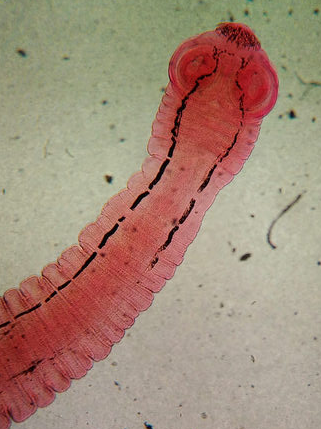Parasite protection uncovered
 A new study suggests parasites in the intestines provide protection against infection in other organs.
A new study suggests parasites in the intestines provide protection against infection in other organs.
The unexpected find has added weight to the potential human health benefits of certain species of parasitic worm.
“We found that, quite unexpectedly, if you infect with a gut worm prior to infecting with a hookworm, which migrates through the lung, the gut worm protects against the hookworm infection,” says researcher Dr Kara Filbey from New Zealand’s Malaghan Institute of Medical Research.
“Previous work with these gut worms shows that they’re immune-suppressive – the worms induce immune regulation to protect themselves within the body, which can also dampen the response against allergens.
“For that reason, they’re widely used in autoimmune and allergic disease research. Therefore, we would have predicted that the immune response against the migrating hookworm larvae would have also been suppressed.”
But rather than benefitting from a suppressed immune response, the lung hookworm was quickly killed in the host, with the gut worm remaining.
What was perhaps even more intriguing was that the gut worm induced this response in the lung, without ever leaving the host’s gut.
“What’s amazing is that this gut worm spends its whole life in the gut,” says Dr Filbey.
“It’s not going anywhere near the lung, but it’s inducing protective mechanisms in this distant organ, and we set out to understand how and why it might have evolved to do this.
“By selectively activating immune cells in the gut which circulate around the body, lodging themselves in different organs, the immune system is primed to act quickly if another worm shows up. Even if you remove the gut worms entirely, those activated cells remain in the body, waiting to protect against a new infection.”
The findings suggest that as well as playing a role in protection against allergic diseases such as allergy and eczema, parasitic worms may also help protect the body from infectious disease.
This work opens doors for future research, including whether we’re moving towards a future where living with a ‘friendly’ parasite could protect against infection and autoimmune disease.








 Print
Print